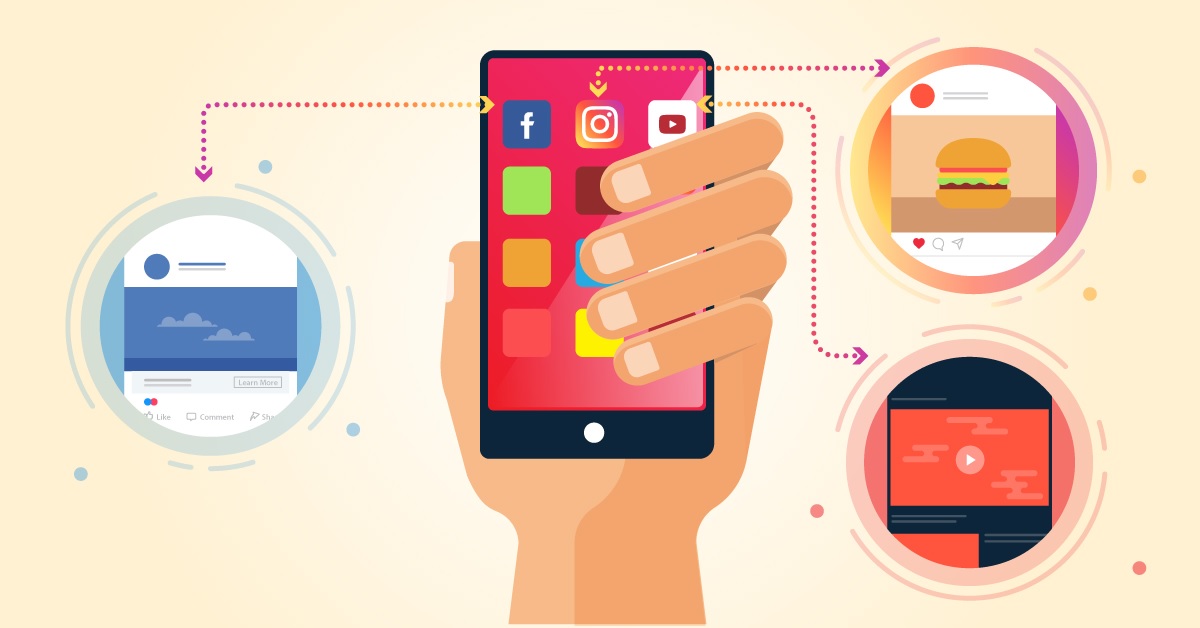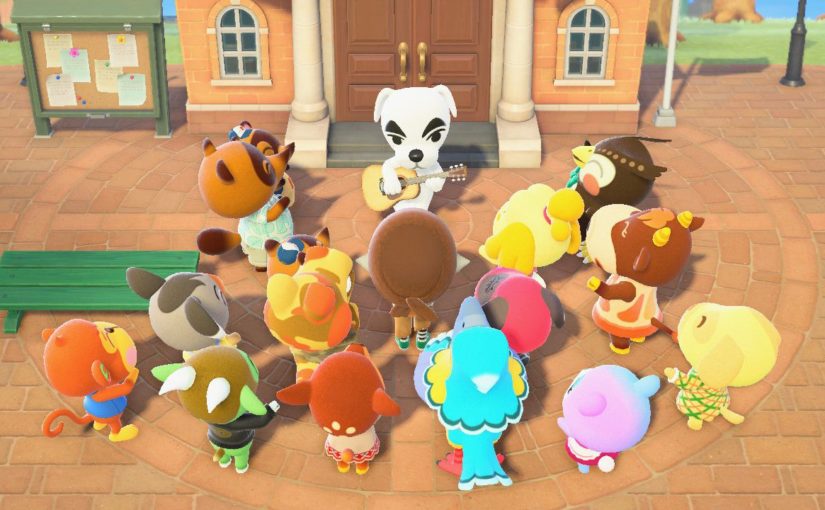Have you ever known someone chatty on the internet, but is secretly a quiet and introverted person in real life? Or maybe, you are this person. The online era has been vastly affecting how people communicate with one another. Video games, whose growth has been catalyzed by the internet, are also used by more and more people as a medium to socialize. Of course, there are implications to this new trend of social behavior, which will be discussed thoroughly in this article. However, before digging deeper into this topic, let us first take a look at the history of human interaction.
The Evolution of Human Communication Tools
Humans are inherently social beings. Communication is the key to the survival of our ancestors and even us today. However, humans have changed their method of interaction according to the technologies or tools that exist at specific time periods. As technology continues to develop, our socializing habits evolves as well. According to a paper called the Development of Communication Technology and its Impact on Human Life, there are four distinct eras that distinguish human interaction methods.
The oldest era took place in 4000 BC when writing was the main tool for communication. The second was commenced when Gutenberg invented the printing press in 1456. Newspapers then came around at 1600. In Europe, the first newspaper printing came from a German company called Aviso di Wolfunbuttel. In Indonesia, Medan Prijaji was the first national newspaper, which operated from 1907 to 1912, according to Kompas.

Newspapers, as you may have already known, are a form of one-way communication. It is simply impossible to “reply” to a piece of news. However, newspapers in the past have been used as a tool to find friends or even lovers. Indeed, there is a designated “matchmaking” section in old newspapers. The “pen pal” section is usually less common, although I have personally made a friend during elementary school by finding their contacts in a newspaper.
Proceeding from the era of writing is the era of telecommunications. The radio and Films are the primary inventions that formed this era. The term “radio waves” was first coined by the German physicist Heinrich Hertz in 1887. However, it was not until 1896 when the first radio transmitter and receiver were invented by Guglielmo Marconi. Four years later, in 1900, radio began to be used commercially.
In Indonesia, the first generation of radio stations appeared around 1925 in Malabar, Central Java. Radio Republik Indonesia (RRI) was founded on September 11, 1945. This day was later also commemorated as National Radio Day, according to Kompas. Usually, in the past, the radio was used to give greetings to your family or friends, although there is no guarantee that the radio announcer will broadcast our message.
The telecommunications era also includes the arrival of television, which gave way to a variety of communication services. Just like newspapers and radios, TVs are a one-way communication tool. A person can use TV and radio to make announcements to the public, but the listener/audience cannot interact with the messages conveyed. This limitation, however, will later disappear in the fourth era.

The fourth era in communication history is called the era of interactive communication. As its name suggests, two-way communication became the norm, and technologies such as satellites, computers, and the internet helped form this trend. According to Forbes, the communication industry in the 1990s underwent major changes thanks to the advent of these brand-new techs. They also established a new array of communication mediums, ranging from email, instant messaging, Voice Over Internet Protocol (VOIP), internet forums, social media, and also online games.
Just like other previous communication tools, social media also evolves from time to time. Friendster, one of the world’s first social media, used to be very popular back in 2001. LinkedIn, founded in 2002, became the standard social media for working professionals. 2 decades later, LinkedIn is still incredibly popular, having more than 675 million users, according to Mary Ville. In 2004, Mark Zuckerberg founded Facebook, which has billions of users today. And two years later, Twitter was founded with the concept of a microblogging site.
Between 2010 and 2011, the emergence of Instagram, Pinterest, and Snapchat changed the focal point of social media content towards images. After the release of TikTok in 2016 by a Chinese company called ByteDance, the mainstream social media content shifted yet again, this time towards short videos. The existence of TikTok is also proof that netizens are now more fond of consuming videos.

The existence of social media provides several conveniences to us humans, such as connecting with friends or family who live far away. It is also much easier for us to find and connect with people who have the same interests as ours. If you like gaming, you can easily find a gaming community online.
However, social media undoubtedly also has its downsides. Social media is designed in such a way that you can only see the content that you like. Therefore, it can act as an echo chamber that reinforces your biases and polarizes your beliefs. Another problem that commonly arises on social media is cyberbullying, which is caused by the vast anonymity that the internet provides.
Despite its many pros and cons, it is undeniable that social media makes communicating much faster, easier, and cheaper. In the past, you had to consider roaming costs when calling people in different provinces. Now, you can easily connect with people who live in other countries or even continents.
Today, the game is predicted to be the new social media. The arrival of the internet may have single-handedly revolutionized the video game industry. It gave birth to many of the popular online games we know back then, such as Lineage and Starcraft in 1998 or Counter-Strike: Global Offensive in 1999. Initially, online games were used as a means of personal entertainment, similar to offline games. However, especially after the COVID-19 pandemic hit, online games nowadays are mostly used as a medium to hang out, interact, and collectively have fun with other people.
How Games Affect Social Interaction
What comes to your mind when you hear the word cool? Of course, everyone has a different definition or interpretation of being cool. For high school students, for example, cool might be associated with someone who is in a music band, a sports team, or student council presidents. In the past, video game enthusiasts were often labeled as nerds or maybe even losers. Fortunately, the trend today has changed. Now, people who are good at playing games have their own charisma. Being professional esports athletes is a dream for many people in today’s society, even though the chances are extremely slim.
The rise of Pay-to-Win (P2W) games also brought a lot of attention to people who spend a lot of money in-game, often crowned as sultans. Influencers in the gaming world even create content about how much money they spend to acquire certain characters or items. For example, Indonesian YouTuber, feraldoto, spent Rp. 64 million to get Albedo C6 on Genshin Impact.
Unfortunately, many of the negative stigmas attached to gamers still persist until this very day. For one, many still assume that gamers are anti-social or loners. Unknowingly to people with these false beliefs, many people make new friends — or even lovers — through online games. Not only that, in some countries — such as South Korea and China — gaming is considered a social activity. In 2003, Mark Griffiths, a lecturer at Nottingham Trent University, released a study on online gaming. He conducted a survey consisting of 11 thousand Everquest players. From the survey, Griffiths found that 25% of the respondents’ favorite part about Everquest is the element of socializing. Therefore, the idea that gamers are anti-social is extensively misleading.
In 2007, he repeated the experiment with a different community in online gaming. This time, he gathered 912 Massively Multiplayer Online (MMO) gamers from 45 countries who spent an average of 22 hours a week playing games. From the study, he also concluded that online games are a highly interactive social environment.
Ten percent of the survey’s respondents even ended up in a romantic relationship outside the game,” Griffiths mentioned in BBC. “In-game socialization is actually a concept that has been around for a long time.” And in 2020, when the whole work was brought to a lockdown, more and more people came to the realization that gaming is more than a form of entertainment; it is also a place to socialize and interact.
Reckful/Byron memorials are now being held inside World of Warcraft across multiple servers and locations to pay respects to a WoW legend pic.twitter.com/Nb4FHfwAvM
— Rod Breslau (@Slasher) July 2, 2020
Last year, gaming has been used as a hangout spot between friends. Important moments, such as birthdays or even weddings, are celebrated inside games. Games have also been used as a medium to show condolences. When streamer Byron “Reckful” Bernsten died in July 2020, World of Warcraft gamers gathered at several locations in-game to pay their respects to the WoW legend.
The Effect of Anonymity On Social Interaction
A person’s behavior in cyberspace is not always the same as his/her behavior in the real world. One of the main reasons why this happens on a vast scale is the anonymity that the internet provides. In online games, for example, rarely anyone uses their real name as his/her in-game name. According to the journal The positive and negative implications of anonymity in Internet social interactions: “On the Internet, Nobody Knows You’re a Dog”, hiding identities can have both positive and negative repercussions.
According to the Social Identity Model of Deindividuation Effect (SIDE) theory, anonymity has the benefit of increasing the effectiveness of a particular group. However, this only applies when all group members completely hide their identity and thus are unidentifiable to each other. If one or more people fail to keep their anonymity, the benefit will cease to exist. Anonymity also eliminates the salience of personal features while enhancing social identity and group immersion.

The strength and chemistry in anonymous communities can also bring precarious consequences. One of the most alarming negative effects of anonymous groups is their ability to disrupt major groups using radical ideas. For example, if a minor group of people hates the Indonesian government, they can gather followers to overthrow the government using anonymity.
However, another positive impact anonymity brings is empowering marginalized groups such as women and people with disabilities. Based on the equalization hypothesis, anonymous communication via the internet can balance the “power” held between minor and major groups.
In the real world, we tend to treat people based on their race, gender, appearance, and so on. In cyberspace, however, we cannot see or judge these social cues, prompting us to treat everyone fairly. For example, someone might try to act cool in front of an attractive person of the opposite sex. This cannot occur in internet forums since he/she cannot see the appearance of other people.
The last and probably most obvious advantage of anonymity is privacy. Generally, anonymity has three links to privacy: recovery from social injury, catharsis by expressing their emotions freely, and autonomy by trying new behaviors or activities without having to worry about being judged by the public or known people. Unfortunately, the autonomy and protection that comes from anonymity can also catalyze reckless behavior that might go unpunished.
Conclusion
Playing games is no longer considered an antisocial hobby or merely a form of personal entertainment. Today’s games, especially with the current pandemic lockdown, became a medium to interact with friends or new people on the internet. In the past year, gaming has provided a place to hang out and celebrate important moments in people’s lives.
However, people in the gaming world, or cyberspace as a whole, often put on a mask that does not represent their real-world behaviors. Due to the protection of anonymity, nobody is afraid to be judged by their appearance, race, or other social cues.
People in the past have believed that friendships in the online world are pretentious and fragile. However, there are a bunch of internet applications that we can use to stay connected with our friends anywhere around the world, from WhatsApp, Facebook, to Discord. I myself am still in touch with friends that I met in Ragnarok Online from the early 2000s. News about gamers who found the love of their life from games is also common nowadays. Therefore, relationships formed on the internet or online games can, indeed, be very strong and long-lasting.
Translated by: Ananto Joyoadikusumo. Featured Image: Nintendo.
